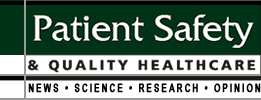 |
 |
 |

January / February 2006

Consumers as Partners
Finally, Patient Safety Advocates Can Feel Good About Tort Reform
By Doug Wojcieszak; Susan E. Sheridan, MIM, MBA;

Martin J. Hatlie, JD
In 2005, Illinois became the first state to adopt an innovative disclosure program known as Sorry Works! Incorporated into a larger medical liability reform bill (Ill. Gen. Ass. Pub. Act 094-0677, 2005). Sorry Works! is a pilot project that supports provider organizations that agree to implement and study the impact of full disclosure of medical errors. It also provides economic and regulatory protection in the unlikely event that their disclosure activities increase liability exposure. No constitutional rights are abrogated; no plaintiff or defendant is denied access to the courts. Sorry Works! is a true middle-ground solution that incentivizes behavior that an increasing body of research strongly indicates will benefit consumers, healthcare providers, and their liability insurers alike. Innovative plaintiff and defense lawyers have also expressed support. In short, the Sorry Works! approach is creating exciting new opportunities for partnerships among people and organizations that, regardless of their position on tort reform, support systems-based care and the future of the physician-patient relationship.
Within weeks after Illinois enactment, the Sorry Works! program was integrated into federal legislation now known as the National Medical Error Disclosure and Compensation (MEDiC) Act (S. 1784). Introduced by Senators Hilary Rodham Clinton and Barack Obama in September 2005, the bill will:
- Provide grants to implement full-disclosure MEDiC programs and immunity for full disclosure — a portion of the grant funds are dedicated to covering any added liability exposure incurred by providers who participate.

- Establish, in consultation with other organizations, a National Patient Safety Database to collect and analyze data generated by MEDiC pilot programs.

- Establish an Office of Patient Safety and Health Care Quality within the U.S. Department of Health and Human Services to administer and study the MEDiC program.
Request for Support
Each of the authors of this column has substantial experience in the tort reform movement. While we identify primarily as consumer advocates for improved patient safety, we acknowledge the concerns that doctors, nurses, healthcare organization executives, and others have with litigation. We are aware that lawsuits sometimes produce unfair or seemingly irrational outcomes for defendants, just as they sometimes do for patients and their families.
Macroscopically, we are very troubled about the role fear of litigation plays in undermining both patient safety and the physician-patient relationship. It is fundamental that reducing patient harm depends on robust information-sharing about risk and that the physician-patient relationship must be grounded in mutual trust. Fear of malpractice litigation undermines both of these highly desirable goals. Accordingly, we strongly support incentivizing full disclosure through supportive, economically effective nationwide policy. We ask for your help to generate additional sponsors for S. 1784, both Republican and Democrat, and call for hearings.
Why S. 1784? Why Now?
As an issue, disclosure is politically ripe. Organized medicine — the American Medical Association, among others — has led in developing the ethical dimension of the issue (AMA, 1994; Sweet & Bernat, 1997; Brazeau, 1999). In addition, a growing body of research suggests that disclosure is highly desired by patients and families who have experienced adverse treatment outcomes and discourages lawsuits from being filed when it is done (Hickson, 1992; Vincent, et al., 1994; Wu, 1999; Gallaher, et al., 2003). The experience of prominent healthcare systems that do disclosure, such as the Veterans Health Administration and University of Michigan Health System, has been positive (Kraman & Hamm, 1999). Liability insurers who have acted on this research, taught disclosure skills, and either incentivized or implemented disclosure programs also have been very successful. Although some insurance company data is unpublished for proprietary reasons, these organizations increasingly report high rates of satisfaction among healthcare professionals and consumers, more liability claims that are settled early or likely avoided altogether, and reduced overall liability costs.
Moreover, the impact of disclosure on the physician-patient relationship is profound. Emotionally fraught as these conversations often are, they are crucial to healing both the professionals involved and the families impacted. As such, they are the surest way to regenerate trust after tragedy.
As a patient safety improvement strategy, it is notable that disclosure to patients is an aspect of system transparency. As such, it can be a culture-carrier. Honest conversations after an adverse outcome provide the opportunity to increase awareness among consumers about inherent risk in healthcare and the importance of sharing lessons learned. By infusing honesty in medicine, full disclosure also dissipates one of the primary obstacles to error reporting, i.e. fear that the patient or family will find out about what happened. Hence, incentivizing and supporting full disclosure is likely to increase reporting of adverse outcomes and lessons learned to the Joint Commission on Accreditation of Healthcare Organizations' (JCAHO) sentinel event reporting program, the new federally protected Patient Safety Organizations, and other voluntary reporting programs.
How Do We Start?
To expedite change, the data and experience with disclosure summarized above needs to be amplified in the public and policymaking arena. Despite the increasingly evidence-based merits of disclosure and well-respected disclosure champions in the healthcare sector, the fear barrier is deeply entrenched in medical and legal culture. Ethical exhortations, white papers, legislation protecting apologies from being used as admissions of fault, and standards enforced by JCAHO all have had limited affect at the sharp end. Recent survey data suggests that only about 55% of physicians fully disclose treatment failures to patients or families (Lamb, et al., 2003).
What is needed is a new coalition of leaders with the courage, perspective, and collective voice to dispel the current attitudes held about disclosure, transforming them into a win/win future. These leaders already are beginning to emerge from the physician and consumer communities, as well as among liability insurers, the hospital industry, defense counsel, and the plaintiff's bar, as part of The Sorry Works! Coalition. The resonance among these diverse stakeholders about the benefits of disclosure testifies to both the ethical concerns and economic forces that are aligning.
We encourage doctors, healthcare organizations, insurance companies, bar associations, lawyers, patient advocates, and concerned citizens to sign and circulate our petition to show support for the Sorry Works! legislation, S. 1784. (The petition is available at www.sorryworks.net/petition.phtml.) The petition drive is not only a chance to send a strong message to Congress, it's also a great way to partner in achieving a middle ground, systems-based solution that will benefit every person and every organization that cares about patient safety and patient-provider trust.
Doug Wojcieszak is a public relations and public affairs consultant and the founder of The Sorry Works! Coalition, a nationwide group of doctors, patient advocates, lawyers, and insurers that promotes full-disclosure as a middle ground solution to the medical malpractice crisis. He may be contacted at doug@sorryworks.net.
Susan Sheridan is president and co-founder of Consumers Advancing Patient Safety (CAPS), a non-profit organization dedicated to fostering the role of consumer as proactive partner. She also leads the World Health Organization's (WHO) Patients for Patient Safety Initiative. Sheridan is a member of PSQH's Editorial Advisory Board and may be contacted at ssheridan@patientsafety.org.
Martin Hatlie is president of Partnership for Patient Safety (p4ps), a patient-centered initiative dedicated to advancing the reliability of healthcare systems worldwide. He co-founded CAPS and serves as an officer on its board. He also serves on the Sentinel Event Advisory Group of the Joint Commission on Accreditation of Healthcare Organizations, the Steering Committee of the WHO Patients for Patient Safety program, and the PSQH Editorial Advisory Board. He may be contacted at mhatlie@p4ps.org.
References
American College of Physician. (1998). Ethics manual: fourth edition. Annals of Internal Medicine, 128, 576-594.
American Medical Association Council on Ethical and Judicial Affairs. (1994). Code of Medical Ethics, Current Opinions, E-8.12 Patient information.
Brazeau, C. (1999). Disclosing the truth about a medical error, American Family Physician, 60, 1013-1014.
Gallagher, T. H., Waterman, A. D., Ebers, A. G., Frasier, V. J., & Levinson, W. (2003). Patients and physicians attitudes regarding the disclosure of medical errors, Journal of the American Medical Associaition, 289(8), 1001-1007.
Hickson, G. B. (1992). Factors that prompted families to file medical malpractice claims following perinatal injuries. Journal of the American Medical Association, 267:10, 1359-1363.
Ill. Gen. Ass., An act concerning insurance, Pub. Act 094-0677, 2005.
Kraman, S. S., & Hamm, G. (1999). Risk management: extreme honesty may be the best policy. Annals of Internal Medicine, 131, 963-967.
Lamb, R. M., Studdert, D. M., Bohmer, R. M., Berwick, D. M., & Brennan, T. A. (2003). Hospital disclosure practices: Results of a national survey. Health Affairs (Millwood), 22(2), 73-83.
Sweet, M. P., & Bernat, I. L. (1997). A study of the ethical duty of physicians to disclose medical errors, Journal of Clinical Ethics, 8, 341-348.
University of Michigan Health System Patient Safety Toolkit, http://www.med.umich.edu/patientsafetytoolkit/, accessed January 5, 2006.
Vincent, C. A., Young, M., Phillips, A. (1994). Why do people sue doctors? Lancet, 343, 1609-1613.
Wu, A. W. (1999). Handling hospital errors, is disclosure the best defense? Annals of Internal Medicine, 131: 970-972.
|
 |
 |
 |


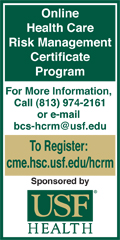





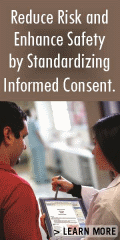

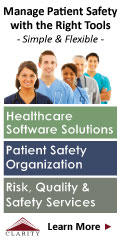

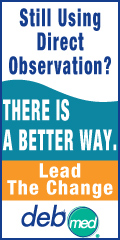





|
 |
